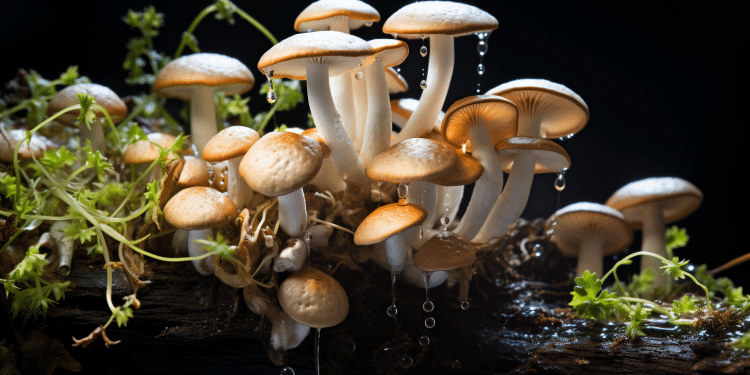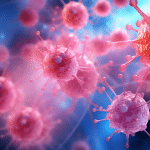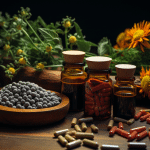Ergothioneine Mushrooms
L-ergothioneine (ERG) is a sulfur-containing amino acid derived from (the metabolite of histidine). It is distributed in certain tissues and organs in mammals, especially red blood cells (about 1 to 2 mmol/L) and the sperm of certain animals. It was isolated by Charles Tanret in 1909 from Ergots (Claviceps purpurea), the yeast-like Scleria Ergots, and Microcephalic Ergots. It is now found to be synthesized by certain microorganisms, such as fungi, Streptococcus, and Mycobacterium, and it may be absorbed and stored in plants and animals.
What is L-ergothioneine?
It is, in simple terms, the active form of ergothioneine that exhibits numerous health benefits. It is a powerful antioxidant that helps protect our cells from oxidative stress caused by free radicals. Free radicals are unstable molecules that can damage cells and contribute to the aging process and the development of various diseases.
Antioxidant Properties
As an antioxidant, L-ergothioneine plays a crucial role in neutralizing free radicals, reducing cellular damage. It scavenges these harmful molecules, preventing them from causing oxidative stress. By doing so, the substance helps maintain the integrity of our cells and promotes overall health and longevity.
Anti-Inflammatory Effects
In addition to its antioxidant properties, L-ergothioneine also possesses anti-inflammatory effects. Chronic inflammation is a common underlying factor in many chronic diseases, such as heart disease, diabetes, and certain types of cancer.
Cellular Protection
L-ergothioneine has been found to accumulate in various tissues and organs, including the liver, kidneys, and bone marrow. This accumulation suggests that the compound plays a vital role in protecting these tissues from oxidative damage.
Cognitive Functions
Emerging research suggests that ergothioneine may play a crucial role in supporting brain health and cognitive function. Oxidative stress and inflammation can contribute to cognitive decline and neurodegenerative disorders such as Alzheimer’s disease. As a powerful antioxidant and anti-inflammatory agent, ergothioneine may help protect the brain from these detrimental effects, promoting optimal cognitive function.
Immune System
A robust immune system is essential for overall health and defense against infections and diseases. The substance has been shown to enhance immune system function by reducing oxidative stress and inflammation. By bolstering the immune response, ergothioneine may help the body effectively combat pathogens and maintain optimal immune health.
Cardiovascular Health
Cardiovascular diseases, including heart disease and stroke, are leading causes of death worldwide. Ergothioneine exhibits cardioprotective properties by reducing oxidative stress, inflammation, and lipid peroxidation, the key factors implicated in the development of cardiovascular conditions.
Eye Health
As we age, the risk of developing age-related macular degeneration (AMD) increases. AMD is a leading cause of vision loss in older adults. The compound’s potent antioxidant properties make it a potential protector against AMD. By neutralizing free radicals and reducing oxidative stress in the retina, ergothioneine may help preserve vision and promote optimal eye health.
Although no experimental studies have shown that animals can synthesize ergothioneine on their own, there is certainly a pathway for the absorption and accumulation of the substance within the cells of animals. The highest concentrations of L-ergothioneine are found — unsurprisingly — in mushrooms.
Which Mushrooms Contain Ergothioneine?
Mushrooms that contain ergothioneine include the pine mushrooms, oyster mushrooms, shiitake mushrooms, king boletes, porcinis, chanterelles, and enokitakes. Porcini, oyster, and Maitake mushrooms contain the highest amounts of ergothioneine. Other varieties, like shiitake and black beans, contain lower amounts of the compound.
More Info on Ergothioneine in Mushrooms
A Penn State Center for Plants and Mushroom Product Research study reports mushrooms have high levels of ergothioneine and glutathione, two compounds that have significant anti-oxidant properties. The authors of the study said that amounts of these two compounds varied widely among the various species of mushrooms, but were overall quite high. They found that, no question, mushrooms are a great source of both of those antioxidants in their diets taken together, and some species are indeed packed with both.
They found that some of the byproducts released as our bodies break down foods for energy, called free radicals, are toxic to living organisms. That is because they create oxidative stress, and free radicals are species of oxygen atoms that have electrons freely sitting on the outer edge of their electron shells. They are highly reactive, and so much so that their efforts to link up with something and fill this lack of electrons, they cause harm to cells, proteins, even DNA strands that come in contact with them on their way around the body.
Antioxidants are substances that protect the body from oxidative stress. In fact, they can have such a strong, positive effect on our bodies that antioxidant supplements have become pretty popular with a lot of consumers. Of course, having a natural source of antioxidants would be even better. Antioxidants are substances that protect your body from oxidative stress.
The body has mechanisms for controlling most free radicals, including ergothioneine and glutathione, but eventually, enough free redicals accumulate to do harm, which has been linked to many diseases of aging, such as cancer, coronary heart disease, and Alzheimers. Porcini mushrooms had the highest concentrations of both ergothioneine and glutathione of any of the 13 species tested. Porcini is a wild mushroom species that is very popular in Italy.
More common types, such as the white button mushrooms (Agaricus bisporus), which are ubiquitous in grocery stores, have lower levels of these compounds, but are still higher than in most other foods. Surprisingly, cooking was found not to significantly affect these compounds, though there is some evidence suggesting cooking affects mushroom nutrition properties and levels of other antioxidant compounds. Also, the compound is highly resistant to heating.
You can find our favorite ergothioneine supplements on the following pages of our website and learn more about each individually:
Learn more:












